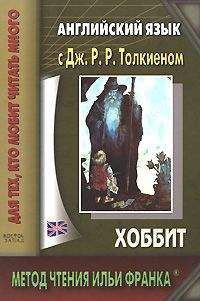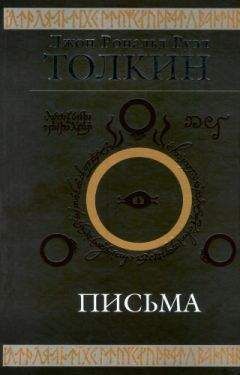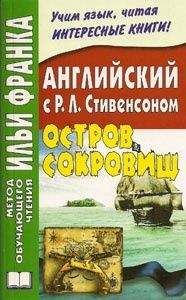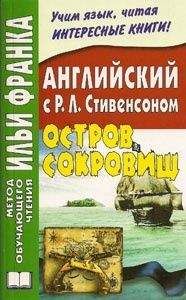“Up you two get (вы двое, по седлам; to get up — вставать, подниматься, взбираться), and off we go (и мы отправляемся)!” said Thorin.
“I’m awfully sorry (мне ужасно жаль), ” said Bilbo, “but I have come without my hat (но я пришел без своей шляпы), and I have left my pocket-handkerchief behind (и я позабыл свой носовой платок), and I haven’t got any money (и у меня совсем нет с собой денег). I didn’t get your note (я не получил вашей записки) until after 10. 45 (до 10. 45) to be precise (что бы быть точным). ”
“Don’t be precise (не будьте точным), ” said Dwalin, “and don’t worry (и не волнуйтесь)! You will have to manage without pocket-handkerchiefs (вам придется обходиться без носовых платков), and a good many other things (и большого количества других вещей), before you get to the journey’s end (до того, как вы достигните завершения путешествия). As for a hat (а что до шляпы), I have got a spare hood (у меня есть запасной капюшон) and cloak in my luggage (и накидка, у меня в багаже). ”
bravo [ˈbrɑ: vǝʋ] paraphernalia [ˌpærǝfǝˈneɪlɪǝ] luggage [ˈlʌɡɪdʒ]
“Bravo!” said Balin who was standing at the inn door looking out for him. Just then all the others came round the corner of the road from the village. They were on ponies, and each pony was slung about with all kinds of baggages, packages, parcels, and paraphernalia. There was a very small pony, apparently for Bilbo.
“Up you two get, and off we go!” said Thorin.
“I’m awfully sorry, ” said Bilbo, “but I have come without my hat, and I have left my pocket-handkerchief behind, and I haven’t got any money. I didn’t get your note until after 10. 45 to be precise. ”
“Don’t be precise, ” said Dwalin, “and don’t worry! You will have to manage without pocket-handkerchiefs, and a good many other things, before you get to the journey’s end. As for a hat, I have got a spare hood and cloak in my luggage. ”
That’s how (вот как) they all came to start (все они отправились в путь), jogging off from the inn (двигаясь медленно от таверны; to jog — трясти; тащиться) one fine morning (одним прекрасным утром) just before May (как раз перед /началом/ мая), on laden ponies (на груженных пони); and Bilbo was wearing a dark-green hood (и Бильбо был одет в темно-зеленый капюшон) (a little weather-stained (немного выцветший от солнца; weather — погода; непогода; stain — пятно) and a dark-green cloak (и темно-зеленый плащ) borrowed from Dwalin (позаимствованный у Двалина). They were too large for him (они были слишком велики для него), and he looked rather comic (и он выглядел достаточно комично). What his father Bungo (что бы его отец, Банго) would have thought of him (подумал бы о нем), I daren’t think (я не осмеливаюсь подумать). His only comfort was (его единственным утешением было то) he couldn’t be mistaken for a dwarf (что его не могли спутать по ошибке с гномом), as he had no beard (так как у него не было бороды).
They had not been riding very long (они скакали не очень долго) when up came Gandalf (когда /их/ нагнал Гэндальф) very splendid on a white horse (/очень/ великолепный на белом коне). He had brought a lot of pocket — handkerchiefs (он привез кучу носовых платков), and Bilbo’s pipe and tobacco (и трубку, и табак Бильбо). So after that (итак, после этого) the party went along very merrily (группа продолжила путь очень весело), and they told stories (и они рассказывали истории) or sang songs (или пели песни) as they rode forward all day (пока они ехали вперед весь день), except of course when they stopped for meals (за исключением, конечно же, когда они останавливались для принятия пищи).
weather-stained [ˈweðǝsteɪnd] mistaken [mɪˈsteɪkǝn] merrily [ˈmerɪlɪ]
That’s how they all came to start, jogging off from the inn one fine morning just before May, on laden ponies; and Bilbo was wearing a dark-green hood (a little weather-stained) and a dark-green cloak borrowed from Dwalin. They were too large for him, and he looked rather comic. What his father Bungo would have thought of him, I daren’t think. His only comfort was he couldn’t be mistaken for a dwarf, as he had no beard.
They had not been riding very long when up came Gandalf very splendid on a white horse. He had brought a lot of pocket-handkerchiefs, and Bilbo’s pipe and tobacco. So after that the party went along very merrily, and they told stories or sang songs as they rode forward all day, except of course when they stopped for meals.
These didn’t come quite as often (это случалось не так часто; to come — идти, приходить, наступать) as Bilbo would have liked them (как того хотелось бы Бильбо), but still he began to feel (но, все равно, он начинал чувствовать) that adventures were not so bad after all (что приключения были не так уж и плохи, в конце-то концов).
At first they had passed through hobbit-lands (сначала они проехали через земли хоббитов), a wide respectable country (просторную респектабельную страну) inhabited by decent folk (населенную порядочным народом), with good roads (с хорошими дорогами), an inn or two (одной или двумя тавернами), and now and then (и время от времени) a dwarf or a farmer (/они видели/ гнома или фермера) ambling by on business (семенящего по своим делам; to amble — идти иноходью; идти легким шагом). Then they came to lands (затем они приехали в земли) where people spoke strangely (где люди говорили странно), and sang songs Bilbo had never heard before (и пели песни, которые Бильбо никогда раньше не слышал). Now they had gone on (теперь они заехали) far into the Lone-lands (глубоко в Заброшенные Земли), where there were no people left (где не осталось ни людей), no inns (ни таверн), and the roads grew steadily worse (и дороги становились постепенно все хуже; to grow (grew, grown) — расти, увеличиваться; зд. как глагол-связка в составном именном сказуемом — делаться). Not far ahead were dreary hills (не далеко впереди были мрачные холмы), rising higher and higher (поднимающиеся все выше и выше), dark with trees (темные от /растущих на них/ деревьев). On some of them were old castles (на некоторых из них были старые замки) with an evil look (с зловещим видом), as if they had been built by wicked people (словно были они построены дурными людьми). Everything seemed gloomy (все казалось мрачным), for the weather that day (так как погода в тот день) had taken a nasty turn (испортилась: «приняла отвратительный оборот»).
respectable [rɪˈspektǝb (ǝ) l] inhabited [ɪnˈhæbɪtɪd] castle [ˈkɑ: s (ǝ) l]
These didn’t come quite as often as Bilbo would have liked them, but still he began to feel that adventures were not so bad after all.
At first they had passed through hobbit-lands, a wide respectable country inhabited by decent folk, with good roads, an inn or two, and now and then a dwarf or a farmer ambling by on business. Then they came to lands where people spoke strangely, and sang songs Bilbo had never heard before. Now they had gone on far into the Lone-lands, where there were no people left, no inns, and the roads grew steadily worse. Not far ahead were dreary hills, rising higher and higher, dark with trees. On some of them were old castles with an evil look, as if they had been built by wicked people. Everything seemed gloomy, for the weather that day had taken a nasty turn.
Mostly it had been (по большей части /погода/ была) as good as May can be (такой хорошей, какой она может быть в мае), even in merry tales (даже в веселых историях), but now it was cold and wet (но теперь она была холодной и сырой; wet — мокрый; дождливый). In the Lone-lands they had to camp when they could (в Заброшенных Землях им пришлось ночевать, где придется: «где они могли»), but at least it had been dry (но, по меньшей мере, было сухо).
“To think it will soon be June (подумать только, что скоро июнь), ” grumbled Bilbo (ворчал Бильбо) as he splashed along (в то время как он шлепал; to splash — брызгать, плескать) behind the others (позади всех остальных) in a very muddy track (по очень грязной колее; track — след, курс, путь). It was after tea — time (время вечернего чая уже прошло); it was pouring with rain (дождь лил как из ведра), and had been all day (и лил он весь день); his hood was dripping into his eyes (с его капюшона капало прямо в его глаза), his cloak was full of water (его плащ был полон воды); the pony was tired (его пони устал) and stumbled on stones (и спотыкался о камни); the others were too grumpy to talk (остальные были слишком сердиты, чтобы разговаривать). “And I’m sure (и я уверен, что) the rain has got into the dry clothes (что дождь попал и в сухую одежду) and into the food-bags (и в сумки с провизией), ” thought Bilbo (думал Бильбо). “Bother burgling and everything to do with it (к черту /это ремесло/ взломщика и все что с ним связано)! I wish I was at home (как бы я хотел быть дома) in my nice hole by the fire (в моей милой норе, у огня), with the kettle just beginning to sing (и чайник только начинал бы закипать: «петь»)!” It was not the last time (и это был не последний раз) that he wished that (когда он пожелал этого)!





